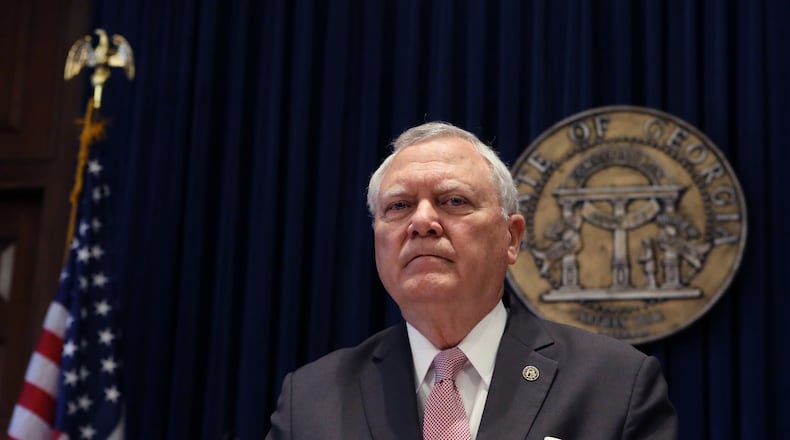Gov. Nathan Deal vetoed a campus gun measure last year with a scathing message invoking a Supreme Court opinion that declared universities "sensitive" places that should be free of firearms. So why did he sign a revamped gun measure this year?
The short answer is that the governor last year also made a personal request to lawmakers for exemptions to the measure that were ignored. This year, when legislators acceded to all his demands and added other exceptions, it made a veto very unlikely.
A longer answer comes from Deal's signing statement. He stuck by his argument that college campuses are "sensitive" places. But he said the carve-outs – which include gun restrictions at on-campus day care centers and faculty offices – address his "major concerns" .
"These excluded areas represent the most 'sensitive places' on a college campus," Deal said in his signing statement. "It is altogether appropriate that weapons not be allowed in these areas. I appreciate the thoughtful consideration given by the General Assembly in expanding these excluded areas within a college campus in this year's bill."
He also elaborated on a concern he's voiced several times in recent days: That campus gun restrictions left students and faculty in off-campus areas headed to or from class "defenseless" to criminals who know they're unarmed.
“At the present time, assailants can, and do, target these students knowing full well that their victims are not permitted to carry protection – even those who are weapons carry license holders – because they are either going to or coming from a campus where no weapons are allowed,” he said.
And he repeated his criticism of city and county police departments in areas where colleges are located, saying he is "not convinced that their response has been adequate."
He’s already facing a torrent of criticism from gun control advocates, faculty leaders and student groups that cheered his veto last year. Some groups could threaten lawsuits over an apparent grammatical error in the legislation; others worry that prospective faculty and students will steer clear of Georgia.
And Democrats aim to make it an issue in the 2018 race to replace him. House Minority Leader Stacey Abrams, who has filed paperwork to run for governor, said in a Twitter message that she will "fight for legislation that makes our campuses safer."
About the Author
The Latest
Featured




